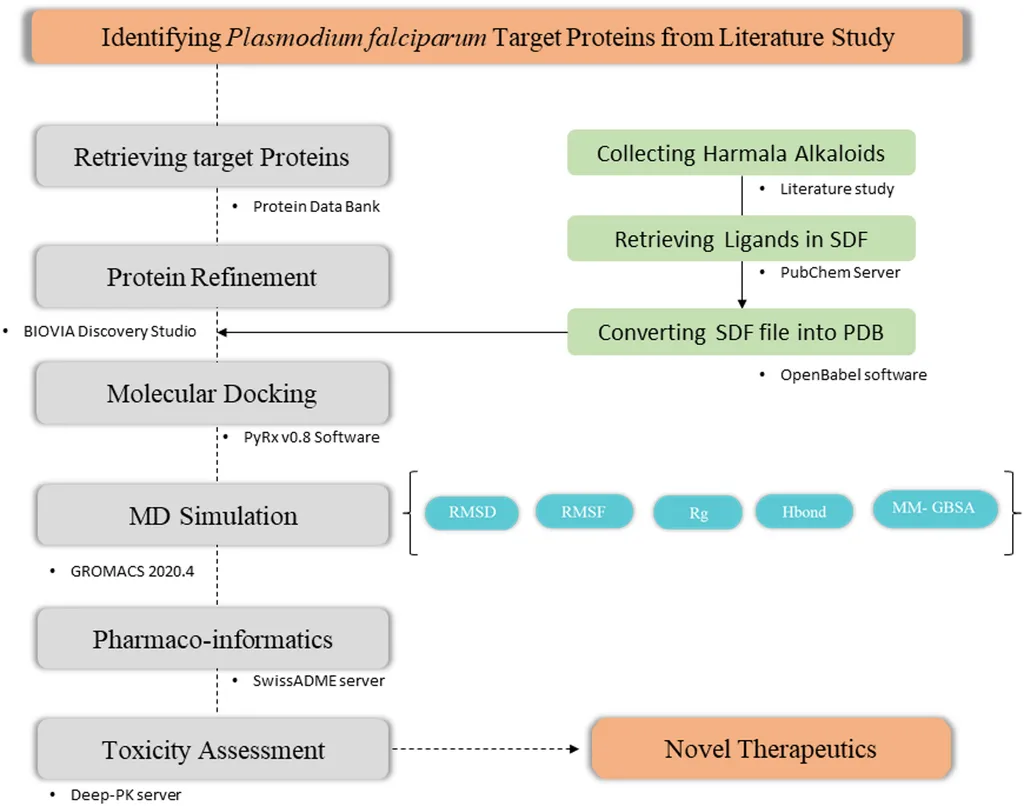In the relentless battle against malaria, a global health scourge that claims hundreds of thousands of lives annually, researchers have turned to an unexpected ally: plants and microbes. A recent study published in *Scientific Reports* has uncovered the potential of harmala alkaloids, compounds found in plants like Peganum harmala and certain microbes, as novel antimalarial agents. This research, led by Kaushik Zaman Dipto from the Department of Pharmacy at East West University, offers a glimmer of hope in the fight against drug-resistant strains of Plasmodium falciparum, the parasite responsible for the most severe forms of malaria.
The study delves into the intricate lifecycle of P. falciparum, which involves both vertebrate hosts and anopheline mosquitoes, making it a formidable adversary. Traditional antimalarial drugs have struggled to keep pace with the parasite’s evolving resistance, necessitating innovative solutions. Enter harmala alkaloids, particularly harmine and harmaline, which have shown promising antimalarial activity by inhibiting a crucial enzyme called protein kinase 4 (PK4). This enzyme is vital for the parasite’s survival, making it a prime target for new therapeutic approaches.
“These compounds exhibit lower toxicity and effectively inhibit both the blood stage growth and transmission of the parasite,” explains Dipto. This dual action could be a game-changer in the development of more effective and safer antimalarial treatments. The study employed advanced in silico methodologies, including ADME analysis, molecular docking, and molecular dynamics simulation, to identify harmala alkaloids as potential inhibitors against key P. falciparum proteins.
The implications of this research extend beyond human health into the agricultural sector. The discovery of harmala alkaloids as potent antimalarial agents could spur the cultivation of plants like Peganum harmala, creating new economic opportunities for farmers. Additionally, the identification of these compounds in microbes opens avenues for biotechnological applications, potentially leading to the development of sustainable and scalable production methods.
“This research not only advances our understanding of malaria but also highlights the untapped potential of natural compounds in combating global health challenges,” says Dipto. The findings pave the way for further in vitro and in vivo validation, bringing us one step closer to a rationally designed antimalarial drug that addresses the pressing issues of drug resistance and toxicity.
As the world continues to grapple with the complexities of malaria, this study offers a beacon of hope, demonstrating the power of interdisciplinary research in driving innovation and shaping the future of global health. The agricultural sector, in particular, stands to benefit from the commercial potential of harmala alkaloids, turning a scientific breakthrough into a tangible economic opportunity.

